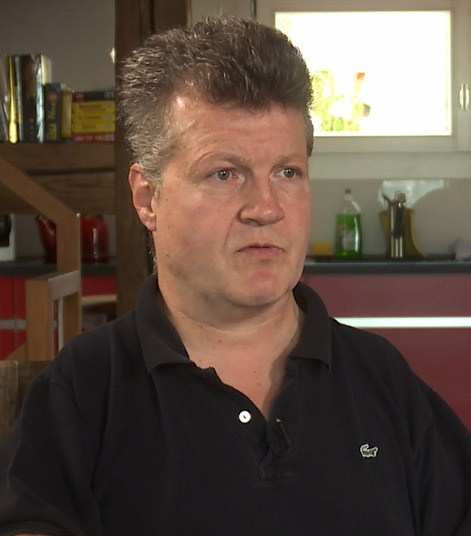 “I’m not a Thalidomider in the first spot. In the first spot I am a man. I’m trying to be a good doctor. I’m trying to be a good husband, I’m a father, I’m a lover and I have short arms.”
“I’m not a Thalidomider in the first spot. In the first spot I am a man. I’m trying to be a good doctor. I’m trying to be a good husband, I’m a father, I’m a lover and I have short arms.”
Jan Schulte-Hillen’s doesn’t like being called “disabled”. He was born in Hamburg, Germany, in April 1961, with two short arms, which he admits can be “very annoying from time to time.” Jan doesn’t feel that having shorter arms has ever prevented him from doing the things he wanted to do. Not only did he become an emergency doctor in Switzerland, he also loves to ride his skateboard and motorcycle and regularly takes his two sons skiing in the Swiss Alps. He speaks five languages and additionally works as a consultant for the medical commission of the German Contergan Foundation which manages compensation payments and pensions to Thalidomide victims in Germany. Contegan was the main brand name for Thalidomide in Germany.
When Jan was a baby, his parents were determined to find out what caused their son’s damage. In fact, his parents Linde Schulte-Hillen and Carl-Hermann Schulte-Hillen played a crucial role in connecting Thalidomide to the epidemic of malformed babies all over Germany. His father, a young lawyer at the time teamed up with Dr. Widukind Lenz, the pediatrician from Hamburg as they drove around the country to find other affected families. Disabled children were often hidden away in those days. Often, it was only when Jan’s father showed people a photograph of him, saying, “this is my son, I myself have a child like this”, that children were brought to the light of day.
His father, Carl-Hermann Schulte-Hillen was also one of the lawyers who represented the so-called Contergan children in the eventually aborted Thalidomide trial (1968-1970) of the owner and leading executives of Grünenthal.